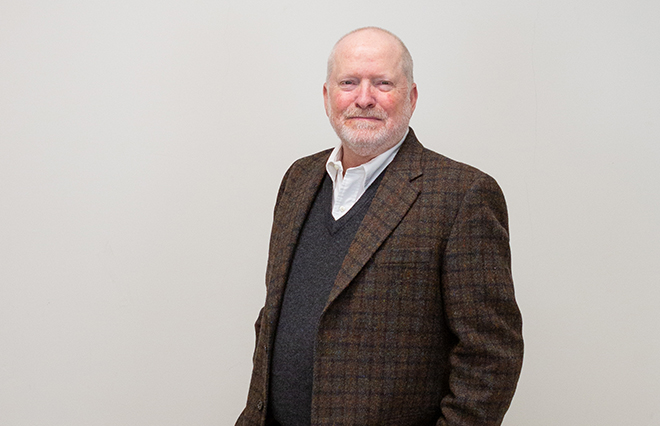Geography professor Don Friend spent the bulk of 2020 as a Jefferson Science Fellow, a role that had him advising a government agency on how to implement climate change science into development efforts overseas.
“I got to put to use knowledge from every class I ever took in college,” Friend said. “Civics classes, government classes, political economy classes, public policy pricing of natural gas…to put it together with science and policy. I was living geography.”
The Jefferson Science Fellowship was created in 2003 by Secretary of State Colin Powell as a way to rally academic, medical, technology and engineering luminaries to provide research and expertise toward overseas development and foreign policy. It is administered by the National Academies of Sciences, Engineering, and Medicine and is supported by the U.S. State Department and the U.S. Agency for International Development.

As one of only eight Jefferson Fellows in the U.S. for that year—and the first from a Minnesota university—Friend worked in USAID’s office of Global Climate Change after its director, Kathryn Stratos, reached out to him saying the office had development plans underway in every Mission abroad and needed to integrate climate risk management in each one.
Friend spent two weeks each in Indonesia and Kenya before COVID hit and he was summoned back to Washington D.C., where he pivoted away from travel to become an advisor – remotely – to overseas development efforts.
“Our climate risk management team was deluged with requests for help. So, we were very lucky to have Dr. Friend with us during this critical year,” said Stratos in introducing a talk by Friend.
Initially thinking he would be working in his familiar areas of mountains and water supply, Friend found his role as varied as any landscape, working with not only geographical issues but with gender roles and safety.
“We [USAID] don’t just write developing countries a check and say here, go improve yourselves,” Friend said. “We work on how to best help a developing country grow. Do they need a better voting system? Do they need clean water? Do they need education? As they build new things, as they stand up their governments, how do it while addressing climate change?”
At the University, where he’s taught for 24 years, Friend was recently honored as Distinguished Professor by the College of Social and Behavioral Sciences. He’s also received the Barry Bishop Distinguished Career Award from the Mountain Geography Specialty Group of the American Association of Geographers.
He sought out the fellowship as a way to keep taking in what fascinates him.
“The international thing has always been interesting to me. What does the rest of the world look like? What does it smell like? What does it taste like? What does it sound like? What do the people believe in? All of that just inherently has been fascinating to me. Hence, it’s what I study.”
Speak Your Mind